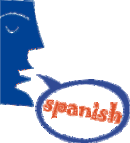Stay with Spanish!

Some Handy Uses of the Spanish Verb Quedar, its Reflexive form Quedarse, and Using Quedar like a 'Gustar' Verb. Becoming familiar with the verb quedar, its reflexive form quedarse, and how to use quedar like a gustar verb, will improve your Spanish. Also, you will be able to understand when someone you are speaking with in Spanish uses quedar. If you look up quedar(se) in a Spanish dictionary, you will see the common translation is to "stay", stay behind, or "remain". And it is used that way often. But as you will soon see the use of 'to stay' or 'remain' is used more in- depth in Spanish. I think you will find it interesting to see how the logic can be a little different.
So let's take a look at some of the more common and simple to understand ways of how quedar and quedar(se), and using quedar like a gustar verb are used.
Quedar:
You can use quedar to indicate location of an object or place. But not people or pets. So instead of using "dónde está?" for inquiring as to where something or some place is, you could say "dónde queda?". Literally, where does it stay? Remember, you don't refer to where people are with quedar. Only places or things.
Where is you office?. - ¿Dónde queda su oficina?
The restaurant is in Panamá. - El restaurante queda en Panamá.
Whereabouts is it? - ¿Por dónde queda?
Quedar is also used to indicate planning or deciding something:
We planed to go yesterday. - Quedamos en ir ayer.
What have you decided? - ¿En qué ha quedado?
I plan to leave today. - Quedo en irme hoy.
Here are a few other uses of the non reflexive form of quedar:
There is a lot left to do. - Queda mucho que hacer.
Is there any left? - ¿Queda más?
The project turned out well. El proyecto quedó bien.
What have you decided? - ¿En qué queda?
It remains to be seen. - Queda por ver.
Quedarse:
Let's now look at a few examples of quedar in its reflexive form, quederse. You may like to review the articles "How are your Spanish Reflexes" and "Se There" to refresh your memory on Spanish reflexive verbs.
To stay in a hotel or spend the night somewhere:
I stayed in a hotel last night. - Me quedé en un hotel anoche.
We had to stay in a hotel near the airport. - Tuvimos que quedar(nos) en un hotel cerca del aeropuerto.
Are you going to stay in a hotel? - ¿Vas a quedar(te, or se) en un hotel?
She stayed at her friends house. - Se quedó en casa de su amiga.
To keep something:
Keep the change! - ¡Quédese con el cambio!
You can keep the car. - Puede quedarse con el carro.
The literal translation is "stay (yourself) with the change", and "you can stay (yourself) with the car".
Using Quedar like a gustar verb:
Notice in the following examples that quedar is conjugated to reflect how many (one or more than one) items are referred to. Quedar is not reflexive here. Quedar in these examples, works just like the verb 'gustar'. The pronouns are not reflexive (se, te, me, or nos), but are indirect object pronouns (me, te, le, les, or nos).
If you need some review on gustar verbs, and an intro to indirect object pronouns, you might like to review the article "Do You Like Spanish?".
Please don't worry if you don't understand the use of indirect object pronouns. You will in time. The phenomenon of indirect object pronouns is unlike anything we have in English. It is advanced Spanish no doubt. Lucky these examples are easy to just memorize.
To fit (clothes):
The pants fit him well. - Los pantalones le quedan bien.
The shirt did not fit him. - La camisa no le quedó.
The hat did not fit me. - El sombrero no me quedó.
To have something remaining:
We have one hour remaining. - Nos queda una hora.
I have only two dollars left! - ¡Me quedan solo dos dólares!
They have three miles left to go. - Les quedan tres millas.
We have only two miles to go. - Nos quedan solo dos millas.
It is clear (to me). - Me queda claro.
No doubt there are other ways to say the above examples. And there are other ways quedar, quedarse, and it's gustar form, are used. I suggest learning the easy situations above and keep an eye out for its other uses.
Remember, Spanish theory is helpful to study, but being able to use that theory in real conversation is what it's all about.
¡Quédese con el español!
Hope this helps,
Fred
